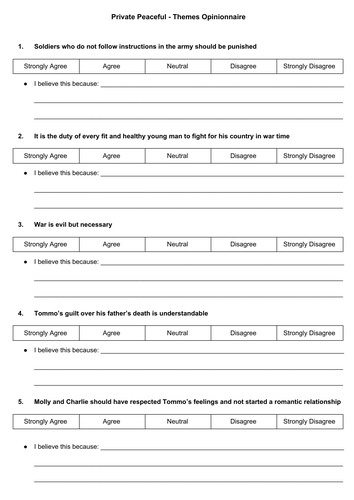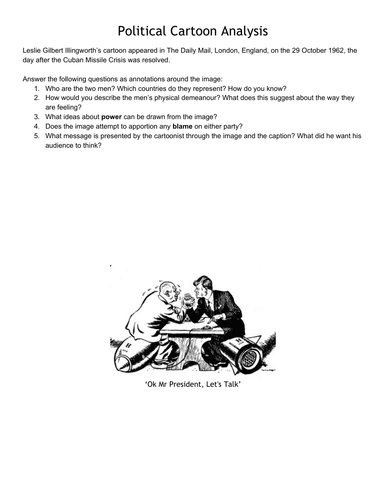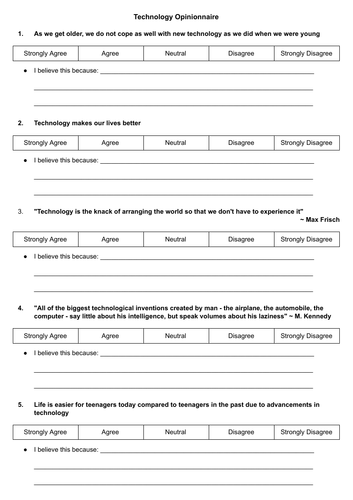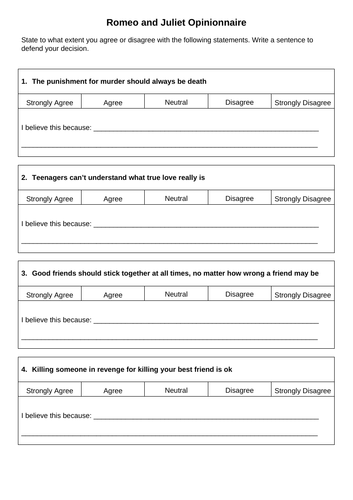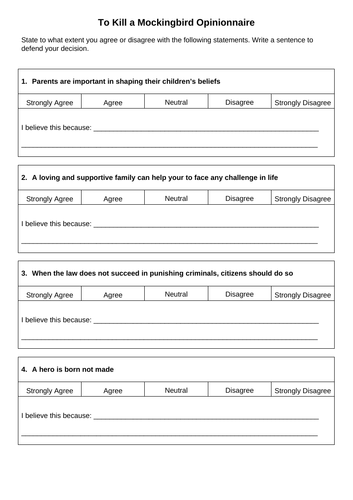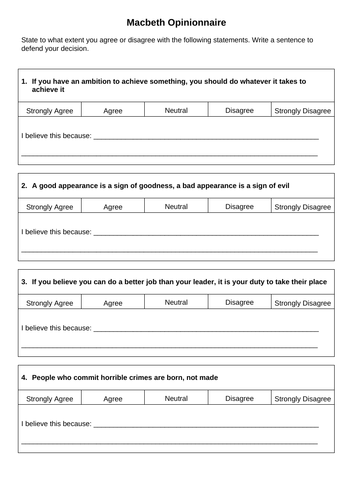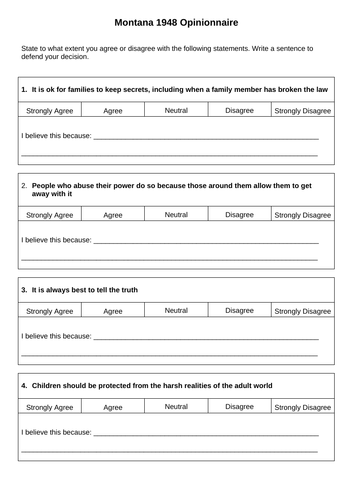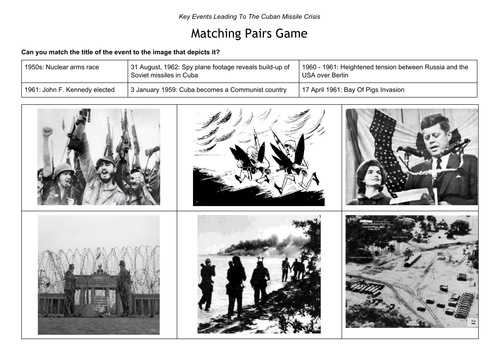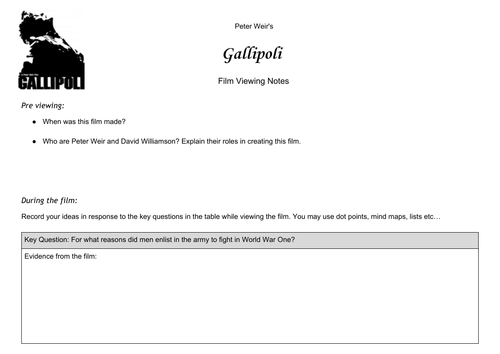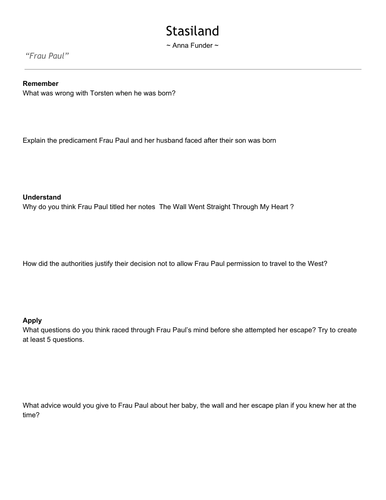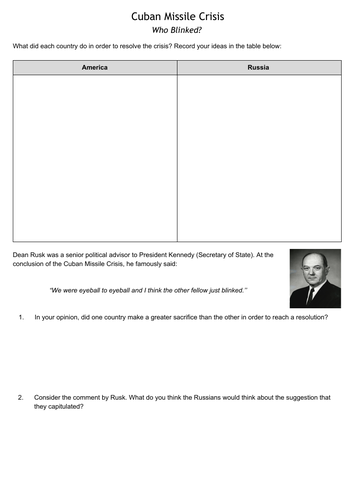
11Uploads
3k+Views
45Downloads
All resources

Private Peaceful Opinionnaire
Students will reflect on their position in response to nine thought-provoking statements about “Private Peaceful” by Michael Morpurgo. This two page worksheet is designed to be used after students have finished reading the text, although some of the statements could be used to spark discussion prior to the study. A final response activity guides students to explore one of their ideas in more detail, drawing on textual evidence to support their ideas.

Ok Mr President, Let's Talk - Political Cartoon Analysis
Students will analyse Leslie Gilbert Illingworth’s iconic cartoon by responding to five key questions. Students are encouraged to make their notes as annotations around the image.

Technology Opinionnaire
Introduce students to the topic of ‘Technology’ by having them complete this opinionnaire. They must select the degree to which they agree with five thought-provoking statements about technology and give a reason for their position. You could have students explore their ideas about a statement of their choice in much more detail by writing a paragraph response . Or, you could use the statements to create a class ‘opinion continuum’ where students get to see where their opinion sits in relation to their classmates.

Romeo and Juliet Opinionnaire
Students are challenged with 9 thought-provoking statements and must decide to what extent they agree or disagree and give reasons for their stance. The statements can be used prior to commencing the text study in order to stimulate thinking and debate, as a starting point for class discussions, or adapted to create a class opinion continuum so students can see where their classmates sit on each statement. To extend upon the ideas, students could elaborate on each statement in a detailed paragraph discussion that draws upon textual evidence to support ideas.

To Kill A Mockingbird Opinionnaire
Students are challenged with 9 thought-provoking statements and must decide to what extent they agree or disagree and give reasons for their stance. The statements can be used prior to commencing the text study in order to stimulate thinking and debate, as a starting point for class discussions, or adapted to create a class opinion continuum so students can see where their classmates sit on each statement. To extend upon the ideas, students could elaborate on each statement in a detailed paragraph discussion that draws upon textual evidence to support ideas.

Macbeth Opinionnaire
Students are challenged with 9 thought-provoking statements and must decide to what extent they agree or disagree and give reasons for their stance. The statements can be used prior to commencing the text study in order to stimulate thinking and debate, as a starting point for class discussions, or adapted to create a class opinion continuum so students can see where their classmates sit on each statement. To extend upon the ideas, students could elaborate on each statement in a detailed paragraph discussion that draws upon textual evidence to support ideas.

Montana 1948 Opinionnaire
Students are challenged with 9 thought-provoking statements about “Montana 1948” by Larry Watson, and must decide to what extent they agree or disagree and give reasons for their stance. The statements can be used prior to commencing the text study in order to stimulate thinking and debate, as a starting point for class discussions, or adapted to create a class opinion continuum so students can see where their classmates sit on each statement. To extend upon the ideas, students could elaborate on each statement in a detailed paragraph discussion that draws upon textual evidence to support ideas.

Matching Pairs - Cuban Missile Crisis Image Activity
Have students revise some of the key events leading up to the Cuban Missile Crisis by matching the event and date to the corresponding iconic image. This quick revision activity is an ideal lesson starter and the worksheet becomes a useful visual cue / memory jogger for students notebooks.

Gallipoli - Film Viewing Notes Worksheet
This worksheet is designed to encourage students to be active viewers of Peter Weir’s film, “Gallipoli”. Students are encouraged to record evidence from the film of the reasons given for enlisting, conditions at Gallipoli and the experience of war. The three large notes sections cater for students preferred note taking style: some may make dot point notes while others may prefer to mind-map. The five post-viewing questions guide students to consider Weir’s main message and intention, as well as a broader reflection on films as a secondary source.

Stasiland "Frau Paul" Higher Order Thinking Questions
These questions have been designed to support student understanding of “Frau Paul” from “Stasiland” by Anna Funder. The questions have been arranged in sequence from lower to higher order in order to scaffold student thinking.

Cuban Missile Crisis - End of Unit Reflection Worksheet
This worksheet guides students to reflect on the information they have learned about the Cuban Missile Crisis to form their own opinion on the question of ‘who blinked’? Students will record notes and consider the contribution each country made towards a resolution, Dean Rusk’s famous quote, and an American and Russian text giving differing versions about who ‘won’. Students will finish with a final evaluation of the ‘crisis’.

